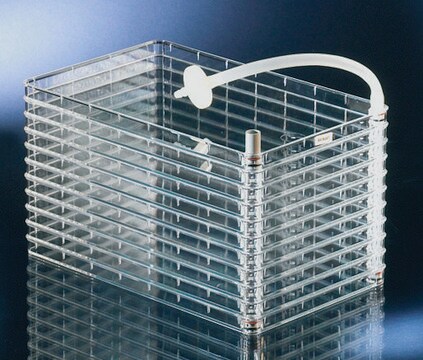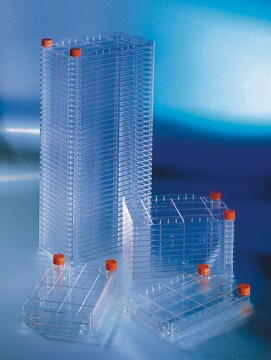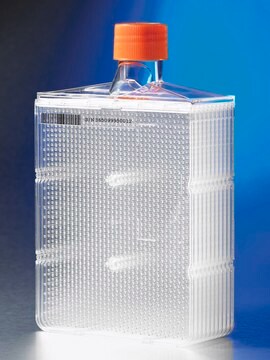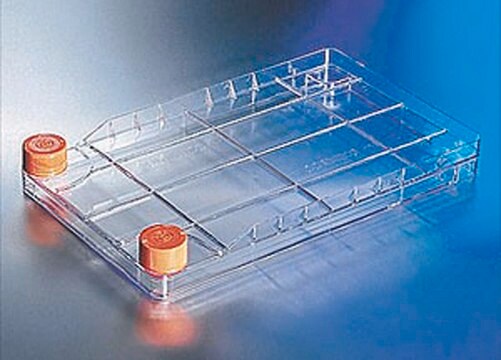Z720895
Nunc® Cell Factory, Nunclon® Δ surface
10-chamber CF, 6320 cm2, 2000 mL, 6/cs
Synonym(s):
cell culture bioreactor, cell culture chamber, cell factories
About This Item
Recommended Products
material
polystyrene
sterility
sterile
packaging
pack of 1
case of 6
manufacturer/tradename
Nunc 170009
L × W
335mm × 205 mm
surface area
6320 cm2
working volume
2000 mL
color
clear
suitability
suitable for (industrial scale cell culture; production of biomaterials such as vaccines, monoclonal antibodies, etc.)
Looking for similar products? Visit Product Comparison Guide
General description
- For large scale cell culture and production of biomaterials such as vaccines, monoclonal antibodies, etc
- Ideal for adherent cells
- Can be used for suspension culture as well
- Growth kinetics unaltered from laboratory scale culture
- Available in 1, 2, 4, 10 and 40 tray cell factory versions for easy scale-up
- Compact design, large growth surface in limited space areas
- Low risk of contamination
- Easy to handle multi-layer cell factory stacks
- Polystyrene trays assembled by sonic welding one on another
- Not Autoclavable
- Certified Nunclon® Δ surface treatment ensures excellent conditions for cell attachment and growth
- Each unit is individually wrapped twice
Legal Information
Choose from one of the most recent versions:
Certificates of Analysis (COA)
It looks like we've run into a problem, but you can still download Certificates of Analysis from our Documents section.
If you need assistance, please contact Customer Support.
Already Own This Product?
Find documentation for the products that you have recently purchased in the Document Library.
Customers Also Viewed
Our team of scientists has experience in all areas of research including Life Science, Material Science, Chemical Synthesis, Chromatography, Analytical and many others.
Contact Technical Service



